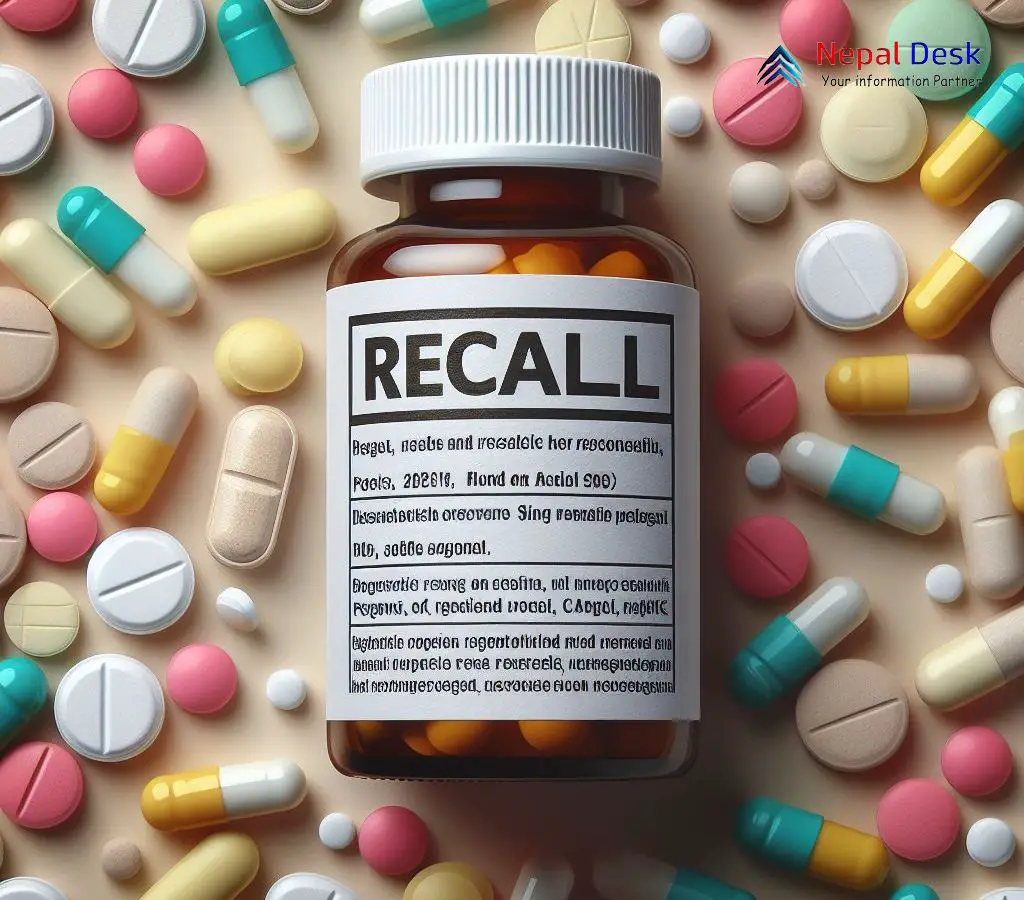DDA Nepal Orders Recall of Substandard Paracetamol Batch
Published Date

Published Date
Nepal's drug regulator recalls substandard 'Cetophen' paracetamol. Understand the rising trend of recalls and tips for checking drug safety.
⏱ 3 min read
Nepal's drug regulator has ordered a widely used pain and fever medicine to be recalled after quality testing found a specific batch to be substandard.
The Department of Drug Administration (DDA) revealed that 'Cetophen' 500mg paracetamol tablets manufactured by Lomus Pharmaceuticals failed to meet official standards based on samples from batch CT-2023 provided by the Nepal Army. Paracetamol is an essential over-the-counter medicine used globally to treat headaches, and body aches and reduce mild fevers.
While the batch in question was supplied only to the military, the DDA has directed Lomus Pharma to recall Cetophen tablets with batch number CT-2023 and inform regulators given the risks of potential retail market presence. Nepal's government provides free paracetamol across state healthcare facilities under mandated low-pricing policies set for vital medicines.
This marks the ninth pharmaceutical drug order recall since July 2022 after DDA lab tests uncovered quality deviations - an increasing trend as nearly 11% of sampled medicines last fiscal year showed substandard results. However, limited staffing constrains regulatory monitoring of recall execution and companies often distribute faulty batches pending official publication of failure findings.
Before this also, through a notice dated October 17, 2023, NS 500 ml (Sodium Chloride Injection I.P) and RL 500 ml (Ringer Lactate Solution for Injection I.P) manufactured by Lomus Pharma were recalled by DDA due to non-compliance with Indian Pharmacopoeia 2022. Also, Panopaz IV manufactured by Aglomed Ltd, Roorkee, India, and imported in Nepal by Shri Shubh Labh Pharma of Birgunj had been recalled due to non-compliance with the AMV method protocol concerning the sterility test performed.
Similarly, in September 2023, Punarnavadi Mandoor (Ayurvedic Medicine) manufactured by Gorkha Ayurved Company and Makardhwaj Vati (Ayurvedic Medicine) were recalled due to non-compliance as per Ayurvedic Pharmacopoeia of India 2016.
As mentioned above, since July 2022, DDA has ordered the recall of nine pharmaceutical drugs, the abovementioned are just some examples.
Industry officials admit that quality enforcement gaps alongside delays in centralized testing allow poor-quality drugs to infiltrate markets before directives get issued to recover those specific items. They recommend increased investments across quality testing infrastructure to match WHO standards, staffing, and real-time field-level screening capacities to secure pharmaceutical supply chains preventing bad medicine penetration and protecting patient health.
How a normal person can check for drug recall?
Here are some tips for a normal person to find out if a drug has been recalled or not:
- Check the medicine company website to establish if it has a dedicated product recalls or safety section listing the latest updates on specified batch numbers affected.
- Dial the customer care contact as appears on box labels to ask directly if certain batches purchased are safety notices or recalls.
- For more information about the inactive substance, kindly approach your in-store pharmacist or medical shop vendor from whom you procured the drug. Since they are the bulk suppliers, they get recall updates regularly.
- Locate in a few countries where national drug regulator portals publish information on the specific batches of recalled medicine.
- Use third-party medicine safety websites that offer all the information on global drug quality alerts and recall data for tracking batch numbers.
- Members of the public should always follow social media accounts that are maintained by government health agencies as they regularly send out alarming public warnings on products that are under recall.
The process of performing such checks teaches customers to be careful about the quality and suitability of consumption concerning purchased pharmaceuticals that evoke questions. In the meantime, in the case of applying drugs in a well-balanced way considering their risk-benefit relationship, there is no alternative to specialized medical advice from practitioners. Taking patient caution into consideration and a check of the product reliability from several reliable sources plus doctor counsel are essential for the safety of medication use.
